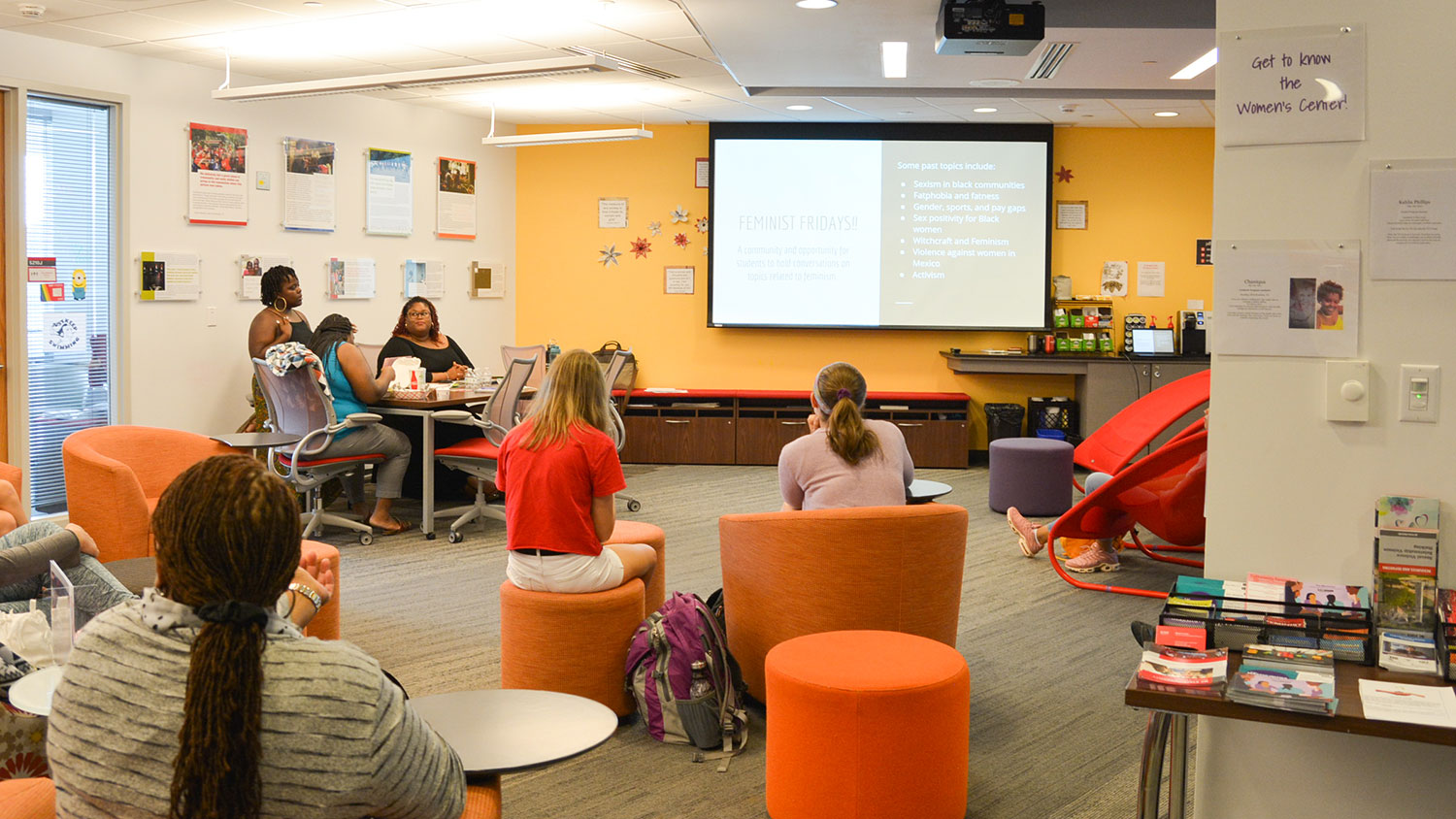Women’s Center Steps Forward with Engagement

If you’ve noticed a steady increase in programming at the Women’s Center, you are not alone. In the past few years, the center has gradually built up an extensive range of multi-dimensional programs and services due to the combined efforts of “the amazing staff, grads and interns that have come thorough the space in the last four years,” says Director Lisa LaBarbera-Mascote.
To help students become aware of all the opportunities available, the center held two “welcome sessions” at the start of the semester to introduce themselves and provide an open forum to showcase all their programs.
As part of the Office for Institutional Equity and Diversity, the Women’s Center also forms one quadrant of the Campus Community Centers, along with its Talley neighbor on the fifth floor, the GLBT Center; Multicultural Student Affairs on the fourth floor; and the African American Cultural Center, a short walk down Cates Avenue in Witherspoon Student Center.
The center’s mission is “to build and create a community of authentic and engaged allies and leaders to pursue gender equity and social justice, enhancing the campus climate through education, advocacy, support and leadership development.”
Just about every day, something is happening in or sponsored by the center, from weekly discussion groups, to special monthly programs, to high profile speakers.
Beginning with an overview of its philosophy, which is based on the principle of social constructivism, Women’s Center Assistant Director Angela Gay took attendees through a guided tour with support from staff members Chaniqua Simpson and Carlyn Wright-Eakes, mentioning the center’s signature annual events, including the Chocolate Festival, Womxn of Color Retreat, Domestic Violence Awareness Month programs, the Sisterhood Dinner, the Gender and Equity Research Symposium, the Spring ASB Guatemala trip focusing on gender equity; and Sexual Assault Awareness Month programs.
Additional programs are the WomenNC Leadership Training Program, a year-long program that selects two NC State students for research projects that they present at the United Nations Commission on the Status of Women; two book clubs; the Masculinities Project cohort; The Movement Peer Educators; Feminist Fridays; and many opportunities to volunteer with the center.
Students, staff and faculty who are interested in getting involved should visit the Women’s Center, go the the Women’s Center website to sign up for the newsletter or follow the center on Facebook, Twitter or Instagram.
Elizabeth Snively writes for the Office for Institutional Equity and Diversity.
- Categories:


